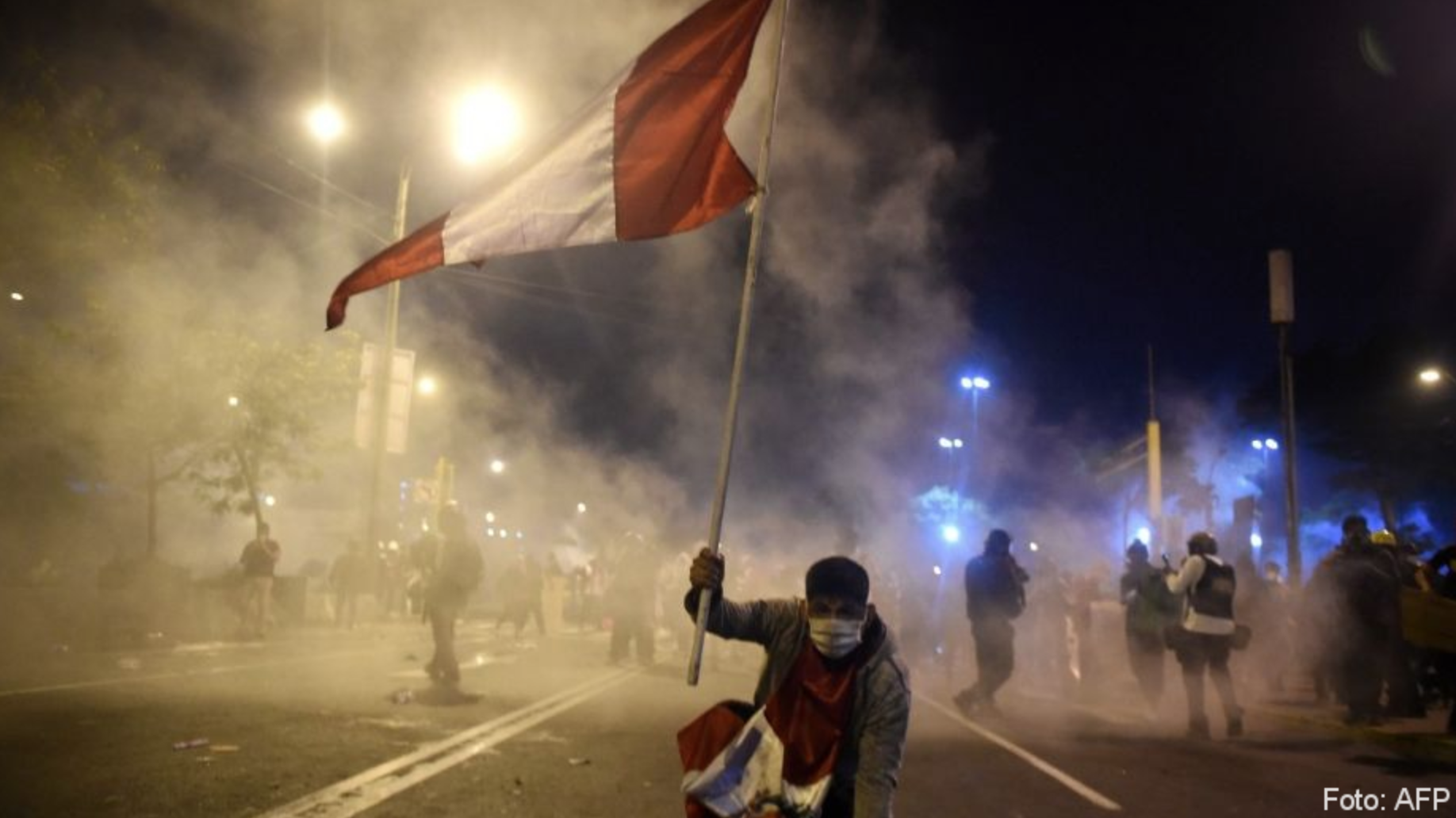While demonstrations, protests, and marches continue in half of the country, aimed at the resignation of the President and the closing of the Congress, the governmental response includes the calls for calm made by President Dina Boluarte and harsh repression by the police and the Army. This has so far led to around fifty deaths and hundreds of wounded, in addition to the declaration of a state of emergency. Thus, the Boluarte government has been aligning itself with the profile of its partners in the right sector of the political spectrum.
In search of a definition
A month ago, after Boluarte assumed the Presidency as a consequence of Pedro Castillo’s failed self-coup, the political course of the country was rather undefined. In mid-January, the definition has become clearer after a change of Prime Minister, who was replaced after only eleven days in office, the multiplication of protests, and the violent repression that led three ministers to resign as a sign of disagreement.
Boluarte is supported by the right-wing groups that represent slightly more than a third of the seats in Congress and have received recognition through the appointment of some ministers and high positions in the Executive. The president makes frequent speeches in which she apologizes for those shot by the forces of order and has endorsed the proposal to bring forward the elections. However, the date of the next general elections is yet to be set, to be held in 2023 or 2024, instead of 2026, given the protesters’ demands.
Some of the appointments Boluarte has made indicate where his administration is leaning. The Minister of Education, Óscar Becerra, who has a multidisciplinary background, was pointed out by a parliamentary investigation as a participant in the acquisition of overpriced computers during the second government of Alan García (2006-2011). This matter did not lead to a judicial prosecution. His participation in social networks shows him to be akin to the ideas of those who question the evaluation made by the National Superintendence of University Education (Sunedu) of the quality of universities, and who, in the name of university autonomy, defend the increase in private for-profit universities. He has shown his political leanings in a presentation before a congressional commission, in which he stated: “We have to detect through the Intelligence services those elements that intend to undermine the democratic bases of our society (…) I regret admitting that they are infiltrating the teaching profession and the Ministry of Education, we cannot allow it”.
The Minister of the Interior, Vicente Romero, is the third in that portfolio so far in a month and a half of Boluarte’s government. He is a general of the National Police who has been close to four presidents of the republic. However, a video circulating on social networks shows him handing out propaganda calendars of Alberto Fujimori during his presidential term. So far in his term in office and given the actions of the police, 18 civilians have been killed while participating in protests in the town of Juliaca.
Due to the riots (as is often the case in these overflowing expressions), the government response has been compared to the case of Brazil. In the pro-Bolsonaro demonstrations that invaded the Congress and judicial headquarters,1,500 people were arrested, but not a single death.
In the case of Peru, Prime Minister Alberto Otárola declared the following in Congress: “We will act firmly in the face of fundamentalist and messianic extremism and any form of totalitarianism driven by violent infiltrators of all kinds”.
In fact, linking protest with terrorism is a repeated conservative thesis whose basis has been announced by the spokesman of the right-wing sector in Congress. Retired Admiral Jorge Montoya recited the following on Twitter: “If the principle of authority is not re-established, all is lost. Law enforcement must be authorized to shoot. It is extremely dangerous to continue like this.”
How long can Boluarte’s presidency last?
Boluarte, who has defined herself as “a leftist provincial woman”, confesses that she does not understand the protests that have spread in the country during the last weeks. Apparently, when she took office (for which, two days earlier, she was exonerated in Congress from an accusation that could have prevented her from continuing as vice president) she had no clear course. She appointed a notoriously incompetent Prime Minister and a cabinet made up of technicians. The protests that occurred a few days later (and probably some sort of closeness and agreement with right-wing sectors of Congress) led her to change course and appoint representatives of the “iron fist” to high positions.
Meanwhile, his disapproval of the Presidency grew three percentage points in January to reach 71%, according to the IPSOS pollster, which details that the rejection is higher in the interior of the country (79%) than in Lima (57%). Disapproval of Prime Minister Otárola is lower, but also in the majority (61%), and that of Congress has increased to 80%. Likewise, an overwhelming majority favors an early election.
According to a survey by the Institute of Peruvian Studies, 58% of Peruvians consider that the security bodies committed excesses in repressing the protests, but half of them said they felt identified with the protests. And support for the demand for a new constitution has increased from 47% in May 2022 to 69% in January 2023.
It is not clear how it will be possible to overcome a situation that seems to be trapped and which is being seasoned with voices calling for a civil war (guerra civil in Spanish). On January 10, the Board of Directors of the National Assembly of Regional Governments stated that the deaths are “the product of popular protest and the actions of the government” and reiterated its position “that the general elections with the presidential and congressional cuts be brought forward immediately”, as an effective solution to the political crisis. In addition, they requested the “sanctioning of those who have committed vandalism against public and private infrastructures”.
Certainly, the resignation of a stunned Dina Boluarte is not a solution to the country’s basic problems. However, it would be an escape valve to the pressure of a social tide unleashed since the coup d’état of Pedro Castillo, his vacancy and detention, but which has deep roots in the secular neglect, tinged with discrimination and contempt suffered by vast sectors of Peru.
*Translated from Spanish by Janaína Ruviaro da Silva













